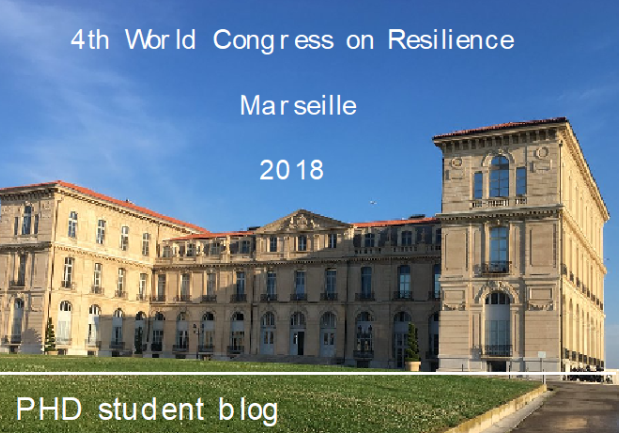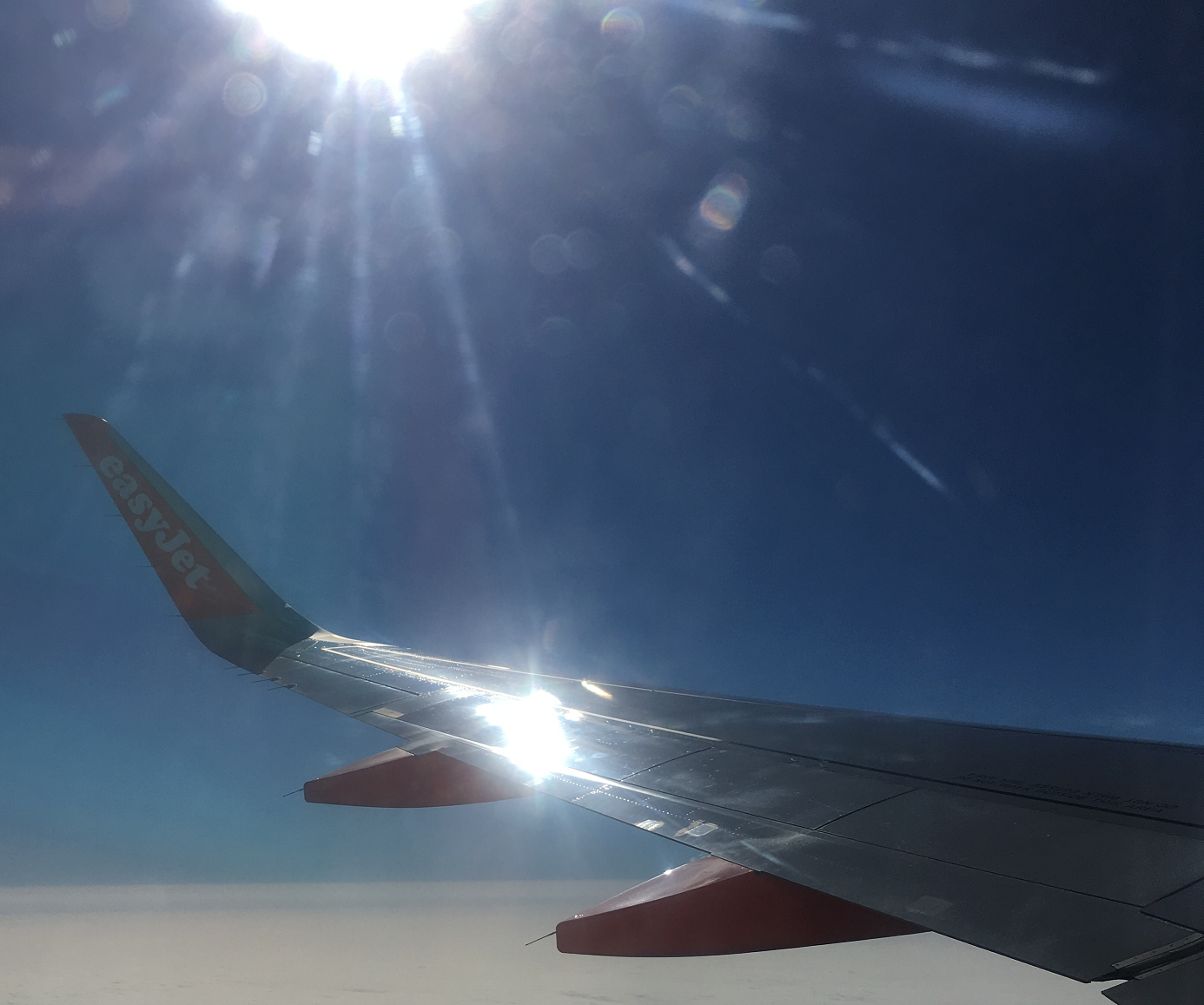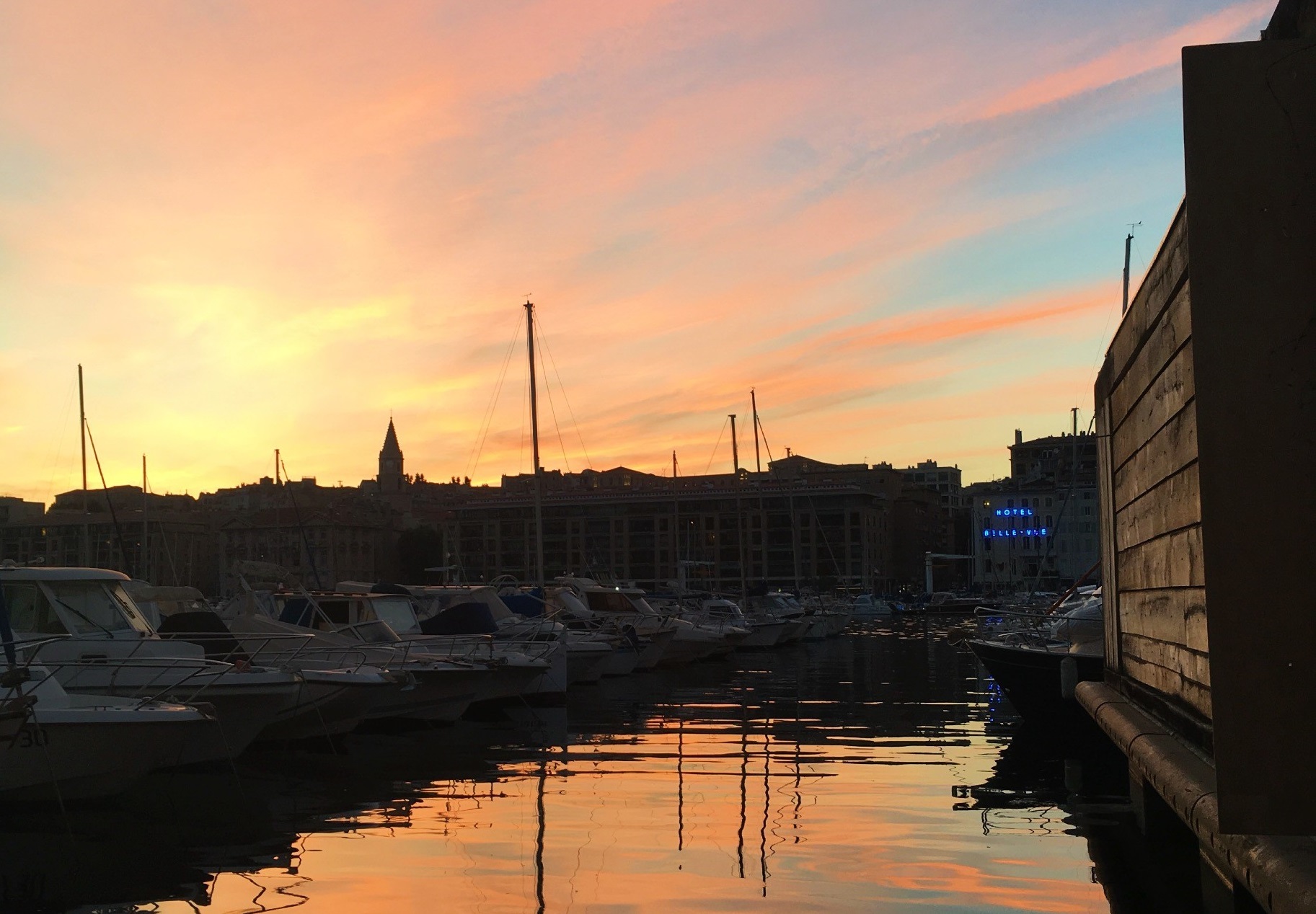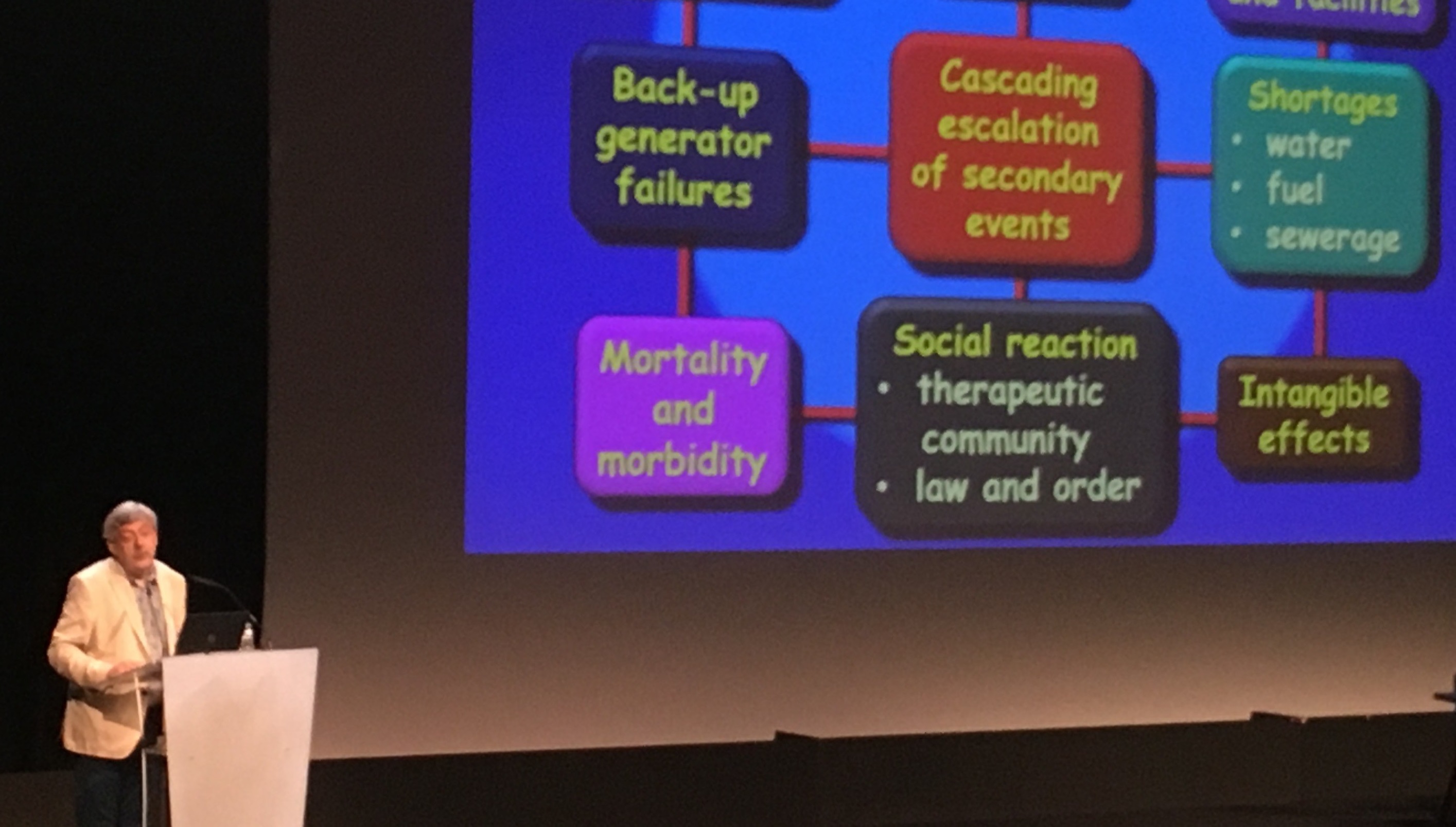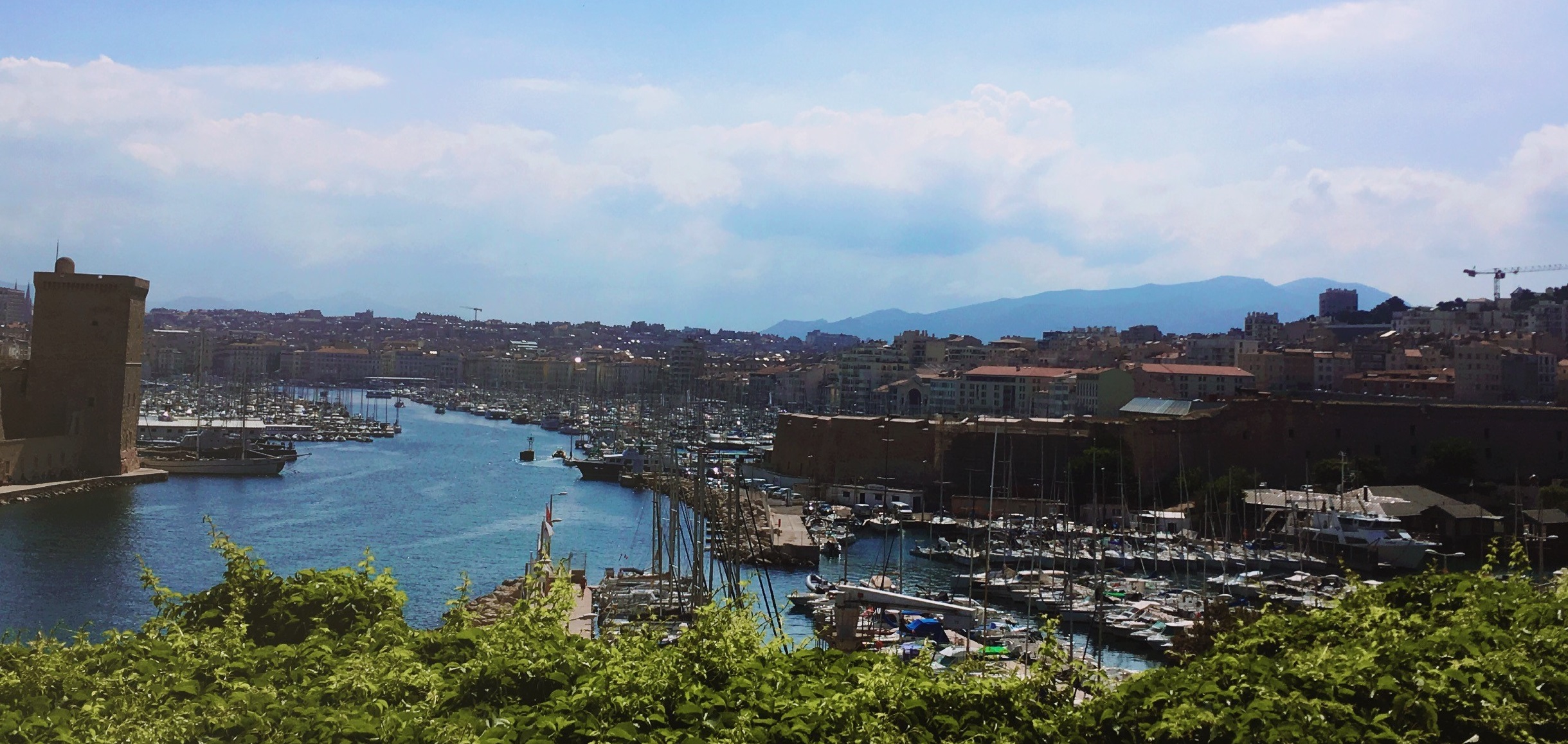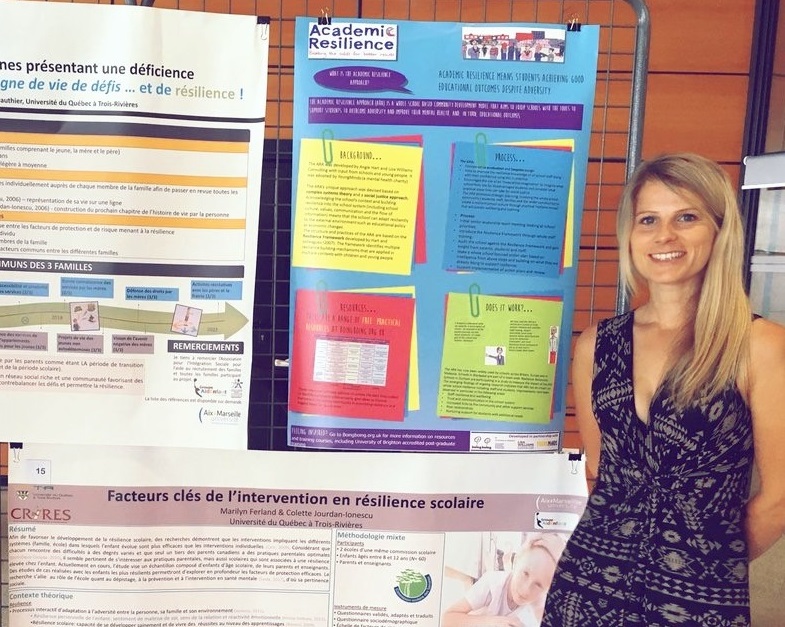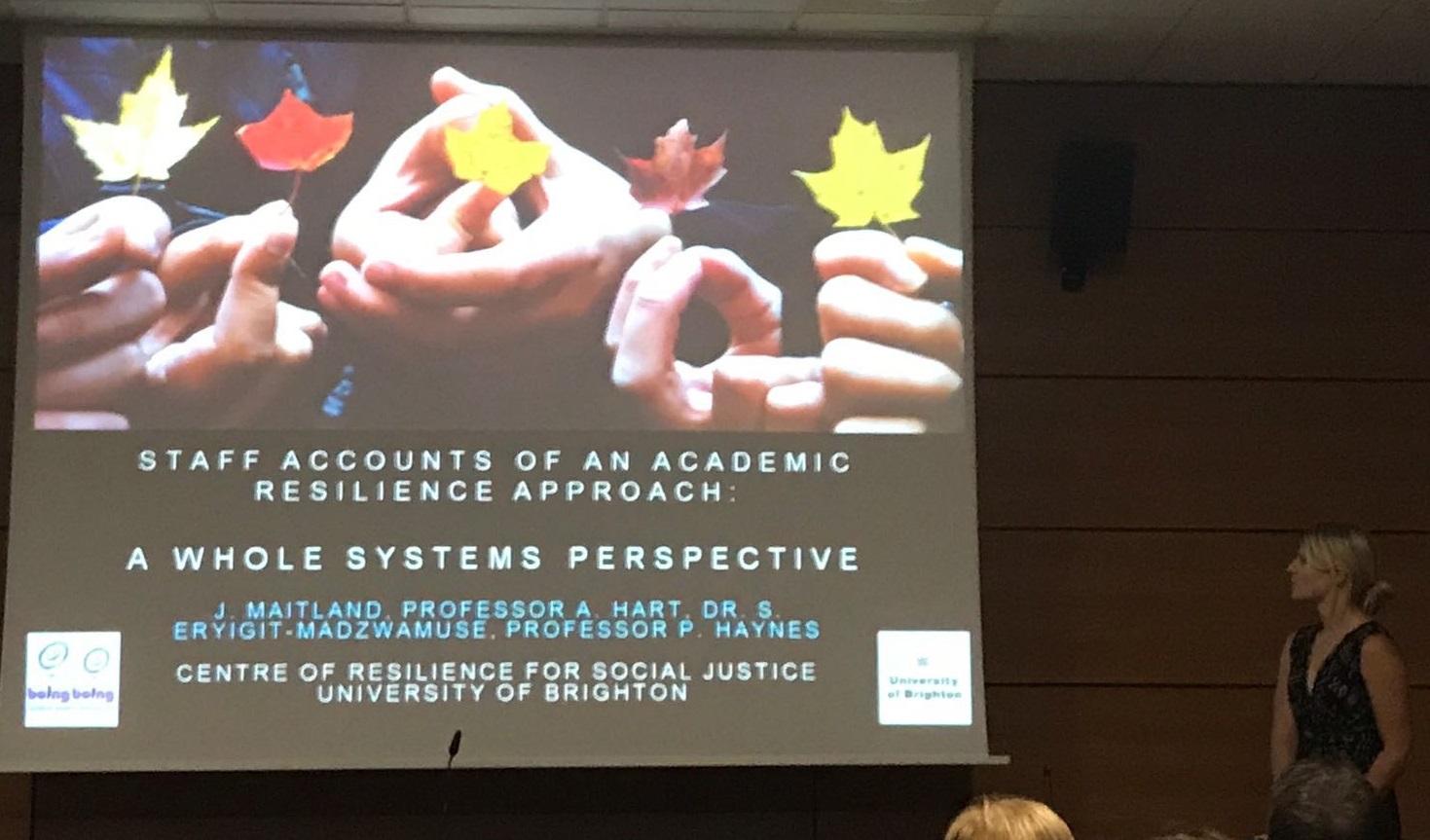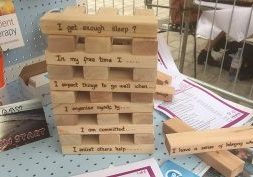Boingboing blogs from…Marseille
PhD Student Josie blogs from the 4th World Congress on Resilience in Marseille – June 2018
At the end of June, the 4th World Congress on Resilience took place in Marseille. Boingboing, along with colleagues from the University of Brighton’s Centre of Resilience for Social Justice (external link) and the Resilience Revolution (external link) in Blackpool were there in full force to share our work and find out all about the latest resilience research from across the globe.
Since this blog makes quite a few references to the resilience framework (created by Professor Angie Hart and Derek Blincow, with help from Helen Thomas), if you haven’t seen it – here’s a handy link so you’re not left out of the little nods to that here and there: Resilience Framework.
Hours before even arriving in Marseille, I had the opportunity to have a good think about my own resilience. The trip involved being away from my two young children (missing sports day and a settling into Reception session – they were both adamant I shouldn’t go) I was trying to ‘focus on good times and places’ and ‘predict a good outcome’ (see resilience framework), when I noticed something out of the window. We’d risen above the clouds and the sun was shining in a perfectly blue sky. It reminded me of the saying ‘somewhere above the clouds, the sun is always shining’. A nice resilient message to kick start the trip, a deep breath, and before I knew it, we were landing in Marseille.
Orientation meeting over, we headed to the port to explore the town’s restaurants and sample some local cuisine. Sorely tempted by the Nutella pizza on offer, in the interest of ‘being brave’ and maintaining a ‘healthy diet’ (see resilience framework) I thought I’d try tapas, including my long avoided nemesis – octopus. I am still slightly haunted by the rubbery tentacles (exacerbated by my later discovery that the octopus nervous system is so advanced that the arms quite literally have a mind of their own), but proud that I tried it.
As day one of the conference kicked off, it was great to hear about the support the conference organisers had invested in ensuring diverse participation including colleagues from the Global South attending this year, and the next congress will be hosted in Cameroon. There are too many presentations to cover here, but this link (external link) provides details of all the presentations and is worth checking out to see where the very latest resilience research is currently focused and where it is heading.
Opportunities of the day included attending several fascinating lectures (which I listened to through my translation headset due to my failure to conquer any French beyond ‘Je ne parle pas Français, parlez vous Anglais?’) and great opportunities to tell lots of people about our fantastic upcoming Resilience Revolution Conference which is happening in 2020 (see here for details) (external link).
Keynote speakers included Professor David Alexander from University College London who is a ‘disasterologist’, which he says unhelpfully cuts conversations short at dinner parties but I thought sounded pretty interesting. David talked about our reliance on technology and electricity, and how its failure could be considered a ‘cascading disaster’ which he says we need to prepare for by anticipating the primary event as well as the multiple consequences that follow that also constitute risk.
At lunch, I found myself talking to teachers from Mexico, researchers from Spain, California and South Africa, and a central government employee from Paris. In spite of the language barrier at times, it was wonderful to be able to learn about some exciting projects (for example, replacing French playground concrete with turf in an attempt to reconnect children with nature) and exchange contact details. I’m certain some of the fascinating people we met over the three days will take up our offer to visit the Centre to learn about what we do and bring their experience and expertise along to add to the mix.
The afternoon session was a real highlight for me, throwing myself wholeheartedly into a ‘theatre for resilience’ workshop with Christelle Fauché. Getting over my initial nerves about speaking French for the first time in 21 years, I had a great time being paired up with random strangers by various body parts and following an imaginary ping-pong ball around the space. I had to work hard to work out was going on, but Christelle’s fabulous facial expressions and gestures helped me along, as well as having had some experience of similar exercises in my previous role as a Drama teacher.
Christelle explained how she works with adolescents facing adversity in Paris and uses techniques like choral movement to create group cohesion, build confidence and discuss challenges like peer pressure. She told us that having experienced one exercise (‘donner/non’ which translates as ‘give’/‘no’), a young person said that she had had the courage and conviction to say ‘no’ when under coercive pressure from an adult. Christelle’s enthusiasm reminded me with a jolt how passionate I am about the creative arts, its role in supporting young people’s wellbeing, and expressing and tackling inequality. Great stuff – celebrated by returning to the same restaurant and ordering a chocolate pizza (the healthy diet is a long game).
On the second day, I met more delegates, from Peru, Canada, Norway and Belgium and discussed wide ranging aspects of resilience in current political and social contexts, from refugee and migrant crisis to threats to environmental sustainability, providing very stimulating food for thought. A common theme was mutual agreement around the need to understand the complexity and dynamic nature of resilience in social and ecological systems.
I also presented a poster summing up the Academic Resilience Approach (ARA) (a whole school resilience building process) and a paper outlining my own research on staff perspectives of a change process initiated by the ARA, giving me a good opportunity to share my work and get into some meaty conversations about adversity in the school system and how the conditions for resilience building can be established.
Reflecting on the trip (exhausting and invigorating in equal measure) was a fantastic opportunity, to share my work of course, but primarily to learn. I learnt a lot from the enthusiastic Resilience Revolution apprentices Laura and James, heard all about the ‘whole town approach’ from Boingboing Development Manager Caroline Beswick and got the low-down on exciting projects from across the globe from people I had never met but often heard of. I even returned home to find that everyone had survived without me and had lots of their own news to share – a resilience building trip all round!
Josie Maitland – PhD student at the University of Brighton, affiliate of the Centre of Resilience for Social Justice and Boingboing volunteer.
